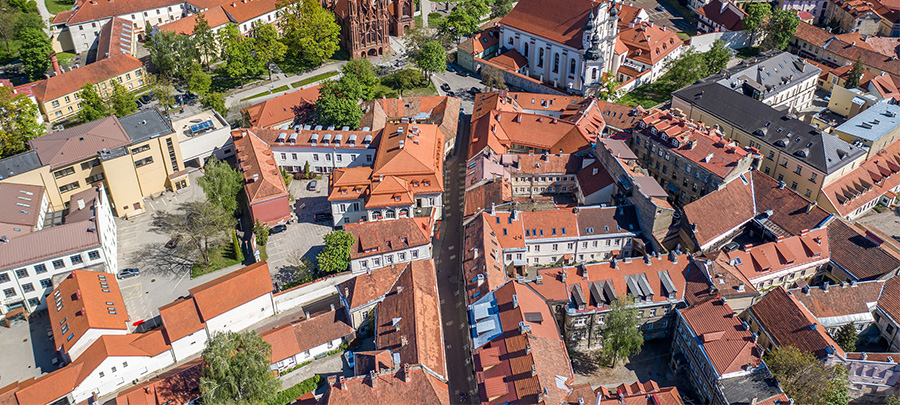

Lithuania is a relatively small country, with a population of almost 3 million, but a vital wine market in the Baltic region. Producers looking for success here can start working with wine importers and distributors from Lithuania and if their brands are successful here, the expansion to Estonia, Latvia and even Belarus will be an easy step to make. According to estimates, over 70% of the country’s wine imports are quickly exported again to the region.
Despite solid economic growth. Lithuania had a negative trade balance of US$5.8 billion net imports, The country is a major importer of beverages, having an import value of US$914 million, a 25% increase compared to 2022 and a massive 68% increase since 2019. Wine is doing very well, with a 10% growth of imports since 2022.
Most of the wine imported comes from European suppliers: Italy, France, Spain and Germany. Imports by volume by country: Italy (28K tones), Spain (21K tones) and France (16K tones), and are the main suppliers, with a combined 78% share of total imports.
By value, Italy takes first place with US$86 million, followed by France with US$82 million and Spain with US$43 million.
Market Characteristics
Similar to many countries in the region, Lithuania’s per capita income and the purchasing power of the growing middle class continued to increase, driving the sales of premium wines. In Vilnius, the country’s dynamic capital, trendy restaurants also contribute to the introduction of a wider range of select wines from around the world.
However, producers looking to move more solid volumes and avoid the logistics nightmare of sending a few cases a month to Lithuanian wine importers will need to also have lower-priced, commercial products for the market. For this category prices should be around €2 ex-cellar or lower, but margins are small.
The Lithuanian market is dominated by several pan-Baltic trading companies. Some wine imported into the country is also re-exported to Latvia or Estonia. Therefore, there is a mismatch between import statistics and the actual consumption of wine in Lithuania which can create some problems for companies who want clear data before entering the market.
There is also a trend towards a consolidation of the main players – Filipopolis, for example, one of the largest wine distributors in Lithuania, was purchased by Henkell & Co Gruppe a few years ago.
The drastic measures that Lithuania took in the last years, culminating with a widespread ban on alcohol advertising in 2018 have also had powerful effects on this sector. Recent statistics show that the consumption of spirits is decreasing, a goal that was very important for the authorities. This has somewhat benefited wine consumption because many customers shifted to this category. However, wine consumption per capita is still low – the average per capita stands at around 15.3 l.
The good news is that Lithuanian consumers’ wine knowledge is quickly growing and their tastes are more demanding, which opens the way for higher-priced, better-quality wines.
What sells well
As in many countries from the region, red wine is the most popular. Besides the major suppliers like France and Italy, wine from Portugal, Hungary and Armenia is getting its own place in the spotlight.
Also, sparkling wine is doing extremely well. Sparkling wine sales account for one-third of the market, with consumers embracing Prosecco, Crémant and Cava as well as Champagne.
Non-alcoholic wines, a category that a few years ago was close to non-existent in Lithuania, is also gaining ground, fueled by the government’s push to limit alcohol consumption. More and more brands are present on the shelves of the local retailers and sales are slowly growing.
Three Lithuanian wine importers:
Baltic Wine & Spirits
Address: Kareivių g. 19-130, Vilnius
Phone: 00370852620710
Website: http://dekanteris.lt/
The Hedonist
Address: Gynėi Str. 14-95, Vilnius
Phone: 00370 656 40521
Website: http://hedonist.lt/
Vyno Guru
Address: Verkiu G.36, Vilnius
Phone: 00370868625652
Website: https://www.vynoguru.lt/lt/
Producers interested in the Lithuanian market can find a database with top Lithuanian wine importers, distributors and retailers here.





